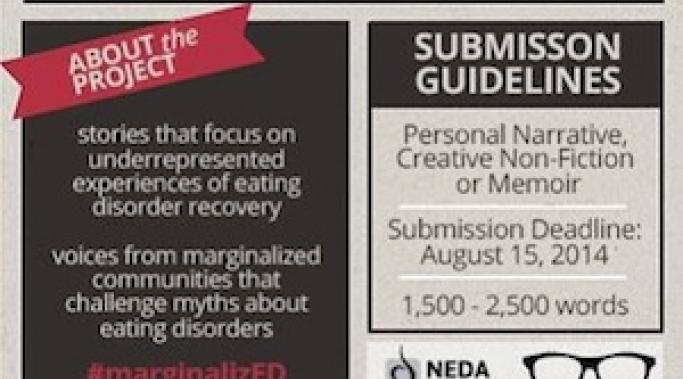I believe trauma is often a repercussion of eating disorder treatment. Of course, clinical interventions are helpful, beneficial, and even crucial parts of healing, but they can still be traumatic nonetheless. This might sound like an oxymoron, so let me explain the possible trauma of treatment.
Anorexia Treatment
I am an identical twin. For most of my childhood, I was viewed as one-half of a package deal. In fact, my sister and I resemble each other so strongly that, as small children, my mom painted our toenails two contrasting colors just to tell us apart. We were known as The Twins, a source of fascination to those around us. I rarely encountered other sets of identical twins in those formative years—until my first experience at a residential eating disorder treatment facility. Twins were not uncommon there, which has me wondering: Is there a connection between eating disorders and twin dynamics?
With the start of another new year just around the corner, you might have some questions about how to set eating disorder recovery resolutions for 2022—and that's completely understandable. In the past, the tradition of making New Year's resolutions was often associated with strict body-conscious goals, such as "to exercise more frequently," "consume a healthier diet," or "lose the 'holiday pounds.'"
Why would anyone resist eating disorder recovery? Wouldn't eating disorder recovery be better than an active eating disorder? Afterall, when we think about eating disorders, the terms laughing, cheerful, bright, glad, or content don’t make the list. For those of us who’ve been living with our disorder for a while, there’s a helplessness, hopelessness and self-doubt, which kicks us down the stairs of depression with an eating disorder. We’re not stupid. We know we’re missing out on life. Yet fear pokes us with a sharp stick taunting, “What if you never recover? You’ll get fat. You’ll spiral out of control.” Terror of the unknown keeps us frozen in place, or moving with icy limbs. There’s a simple reason we resist eating disorder recovery. Once we hear it, eating disorder recovery won’t be the same.
When I first embarked on the long road that is recovery from anorexia, I did so half-heartedly. It was something I thought I "should" do, so I just went through the motions. I saw my therapist. I saw my dietitian. I went to a support group. But aside from that, very little changed.
As a voice for eating disorders awareness, education, and advocacy, I am glad to have a platform such as this blog where my voice can be "heard." Too often, popular media portrays a one-dimensional view of eating disorders. That said, I struggle with the fact that I am the exact stereotype that you see on television and in movies. I am a Lifetime Movie or After School Special waiting to happen. I am white, female, young, heterosexual, intelligent, middle class, and anorexic.
Last month, I was traveling with family and friends and had a chance to see just how far my recovery from anorexia has come. When I went back to inpatient treatment over a year ago, I wanted to get better - to recover - but was honestly starting to doubt if it was possible. It was my third trip to treatment in as many years. It hadn't "worked" before, so why would now be any different? Even in the year since returning from treatment, it hasn't looked so great at times.
Patricia and I have both written before about the long, slow process of coming to acceptance of your body in your eating disorder recovery. However, it occurred to me that one of the most helpful things in my early recovery from anorexia, was a list of very down-to-earth, very practical do's and don't's for dealing with my changing body. Some of these are things I still use today if I'm having a rough body image day.
In a lot of ways, the eating disorders section of the Diagnostic and Statistical Manual of Mental Disorders improved drastically in the 2013 edition (the DSM-5). Binge eating was given its own diagnosis, finally allowing millions of Americans to hear the "me too" of not being alone in their struggle. People were finally able to see that they were sick (and stop shaming themselves), which is a huge step in the road to healing. Unfortunately, I can't consider all of the changes in this most recent edit as progress.
One of the major adjustments I've had to deal with in the last 6 years since I've started recovery from bulimia, has been to accept and love how my body looks and feels without abusing it the way I did for years. Because I suffered from bulimia and not anorexia, it was easier to hide at the time that I was suffering from an eating disorder, because I still looked 'normal' and maintained almost the same weight for a few years.









